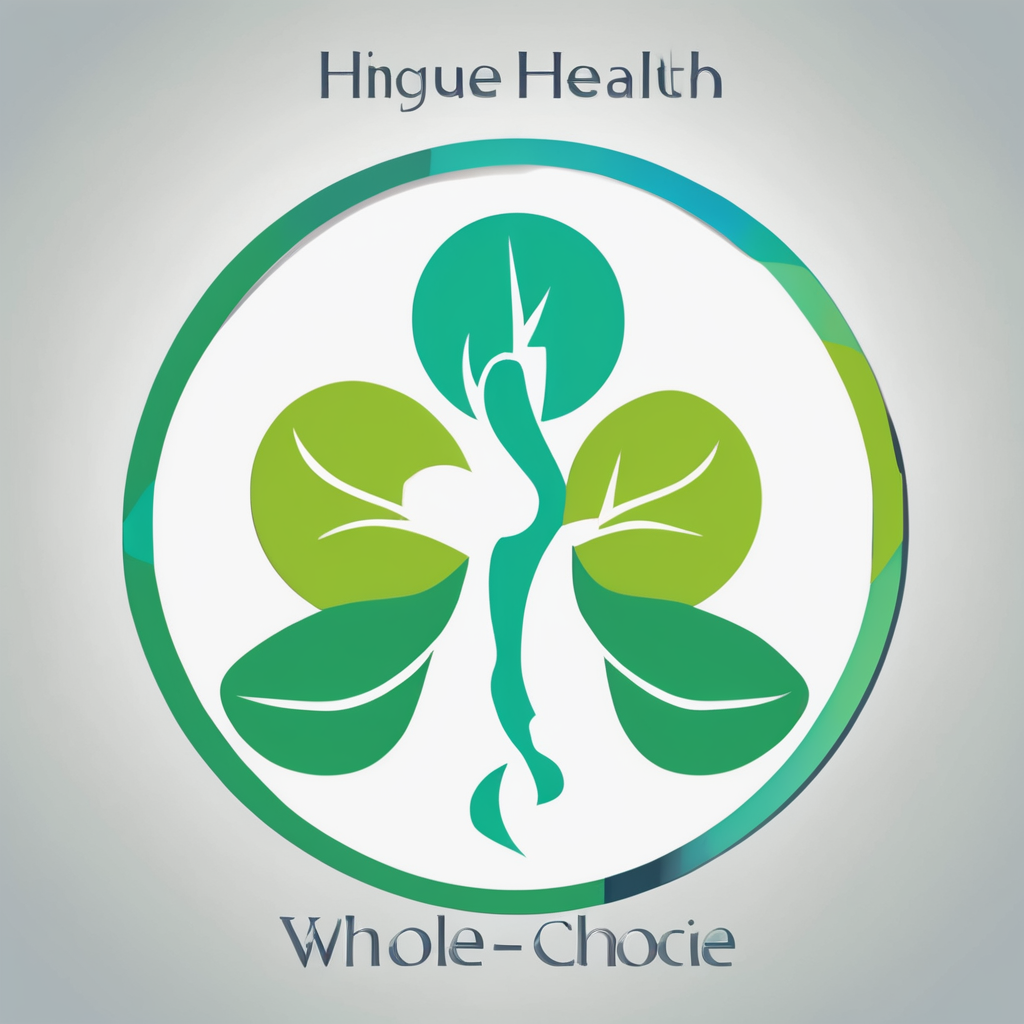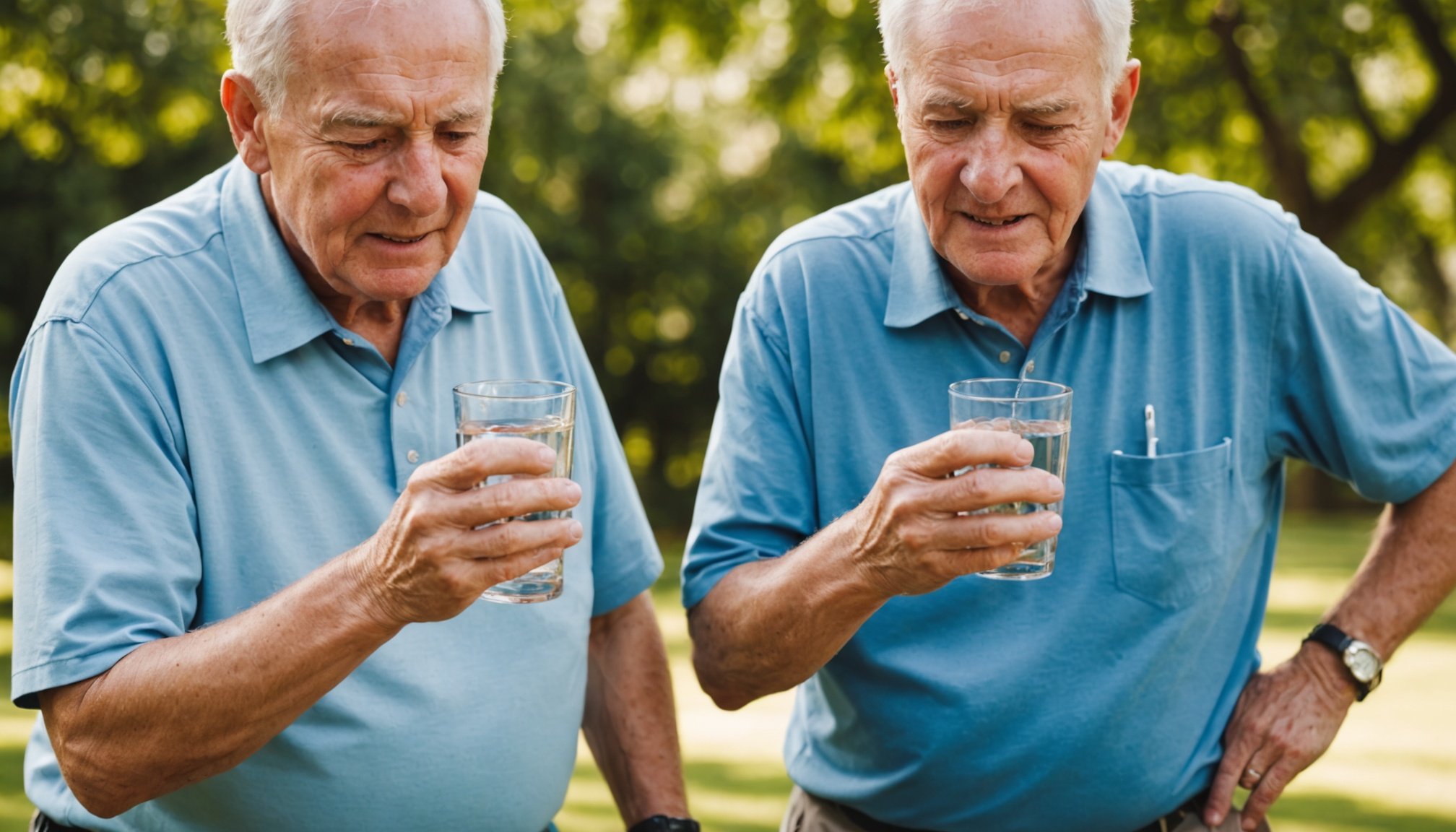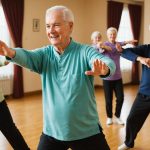Understanding Dehydration in Seniors
Dehydration in the elderly is a critical concern due to their increased vulnerability and the significant role that hydration plays in maintaining health. Dehydration occurs when there is an inadequate water balance in the body, which can significantly impact older adults. Seniors often experience reduced thirst sensation, making them less aware of their need for water, which exacerbates dehydration.
Several common causes contribute to dehydration in elderly individuals. These include decreased kidney function, certain medications (such as diuretics), and physical conditions that impede easy access to fluids. Additionally, chronic illnesses, such as diabetes and dementia, often make it more challenging for older adults to maintain proper hydration levels.
Have you seen this : Enhance your focus and productivity with lion's mane mushroom
The impact of dehydration on seniors’ health and well-being can be severe. It can lead to dizziness, increased risk of falls, urinary tract infections, kidney stones, and potentially life-threatening complications like heatstroke. Furthermore, in older adults, dehydration can exacerbate existing health conditions, reduce cognitive function, and impair daily living.
Caregivers must be vigilant in identifying and managing factors contributing to dehydration. Encouraging regular fluid intake, monitoring water consumption, and providing accessible hydration options can help safeguard seniors against the adverse effects of inadequate hydration. Recognising the significance of staying hydrated is essential to promoting healthier lifestyles for older individuals.
Also read : Unlock the Power of Pilates: Discover the Surprising Benefits for Your Fitness Journey
Key Symptoms of Dehydration in Elderly Individuals
Dehydration in elderly individuals presents with several notable symptoms. Physical indicators, such as dry mouth, fatigue, and confusion, can often be among the first to manifest. These symptoms are critical warning signs that highlight inadequate hydration levels. Seniors might also experience muscle cramps or sunken eyes as dehydration progresses.
Beyond physical symptoms, behavioural changes serve as crucial warning signs. Mood shifts, such as increased irritability or depression, might appear alongside decreased social interaction. Seniors may become less engaged in activities they previously enjoyed, indicating a subtle yet significant decline in their overall well-being.
Recognising these symptoms early is essential to prevent worsening conditions. Prompt attention to both physical and behavioural signs can lead to timely interventions, safeguarding against prolonged health issues. Understanding these indicators in elderly individuals aids in maintaining their overall health and quality of life. It’s important not only for caregivers but for family members to remain vigilant in monitoring these symptoms to ensure the well-being of their older loved ones.
Practical Tips for Caregivers
Supporting seniors in maintaining adequate hydration is crucial for their health and well-being. Caregivers play a key role in dehydration prevention by implementing effective strategies. Here’s how:
Monitoring Water Intake
Ensure seniors are drinking enough fluids by knowing the recommended daily water intake. This varies, but a common guideline is 1.5 to 2 litres per day. Tools like smartphone apps or hydration charts can aid in tracking their intake. Be attentive to signs of insufficient fluid intake, such as dark urine or infrequent urination.
Encouraging Fluid Consumption
Introduce creative methods to make drinking more appealing. Offer a variety of beverages, like flavoured water or herbal teas, and incorporate hydrating foods like soups. Establishing a routine by regularly scheduling drinks throughout the day can also promote consistent hydration.
Providing Hydration Education
Understanding hydration’s importance empowers seniors. Educate them on its benefits and potential risks of poor fluid intake. Equip caregivers with knowledge to spot symptoms early and address them promptly. Share educational resources with families to create a unified support system.
By adopting these strategies, caregivers can significantly reduce the risk of dehydration in elderly individuals, ensuring they remain healthy and vibrant.
Preventive Measures Against Dehydration
Hydration prevention is crucial for fostering senior care and ensuring that older adults maintain optimal health. One effective approach is creating a hydration-friendly environment that encourages fluid intake. This can include placing water bottles or glasses in easily accessible locations throughout the home and reminding seniors regularly to drink.
Assistive tools are incredibly beneficial for hydration reminders. Technologies such as smart water bottles that light up, timers, or smartphone apps can help seniors recall when it’s time to hydrate. These tools not only serve as reminders but also enhance engagement and make hydration an easier task.
Dietary modifications also play a significant role in enhancing fluid intake and can effectively support hydration prevention. Incorporating foods with high water content into daily meals, such as cucumbers, tomatoes, oranges, and watermelons, can be delightful and refreshing options. Soups and broths are also excellent choices for boosting water consumption through diet.
By focusing on these essential preventive measures, caregivers and family members can create a supportive environment conducive to maintaining proper hydration levels. This holistic approach can significantly mitigate the effects of dehydration and contribute to the overall well-being of elderly individuals.
Recommendations for Hydration Strategies
Maintaining a proper fluid balance in seniors is essential for their overall health. It’s beneficial to choose suitable hydration strategies tailored to their needs. For instance, selecting appropriate beverages is a fundamental step. Water remains a priority, but naturally flavoured options like herbal teas can make consuming fluids more appealing.
Incorporating foods with high water content into their diet effectively supports hydration. Vegetables such as cucumbers and tomatoes, along with fruits like oranges and watermelons, are excellent additions. These foods not only hydrate but also provide essential nutrients, enhancing overall well-being.
While planning hydration, it’s crucial to consider the impact of certain medications that might affect body fluid levels. Diuretics, commonly prescribed to seniors, can increase fluid loss, demanding more vigilant hydration practices. Caregivers should work closely with healthcare providers to adjust fluid intake according to the individual’s medication regimen.
Overall, a strategic approach that combines balanced fluid and nutritional intake, adjusted for individual medications, can significantly promote senior well-being. Emphasizing the importance of tailored hydration strategies helps ensure that seniors maintain adequate hydration, thereby reducing risks associated with dehydration.
When to Seek Medical Help
Recognising when to seek medical advice is crucial in managing dehydration care for seniors. Timely intervention can prevent severe complications. If an elderly individual experiences persistent symptoms such as extreme fatigue, confusion, or a rapid pulse, it’s vital to consult a healthcare professional immediately. These could indicate severe dehydration requiring urgent attention.
In circumstances where the senior is unable to retain fluids, experiences continuous vomiting, or exhibits a significant drop in blood pressure, professional evaluation becomes imperative. Such signs suggest that oral rehydration might not be successful and medical treatment could be necessary.
Understanding the importance of prompt treatment for severe dehydration care is essential. Delays in addressing these critical symptoms can exacerbate health risks, leading to kidney damage or cardiovascular stress. Therefore, caregivers must monitor any escalating symptoms closely.
Various resources for medical consultation and assistance are available to guide families and caregivers. Access to telehealth services and local clinics provide convenient options for seeking advice and determining the need for further interventions. By staying vigilant and informed, caregivers can ensure that they address dehydration effectively and protect the health of their elderly loved ones.











